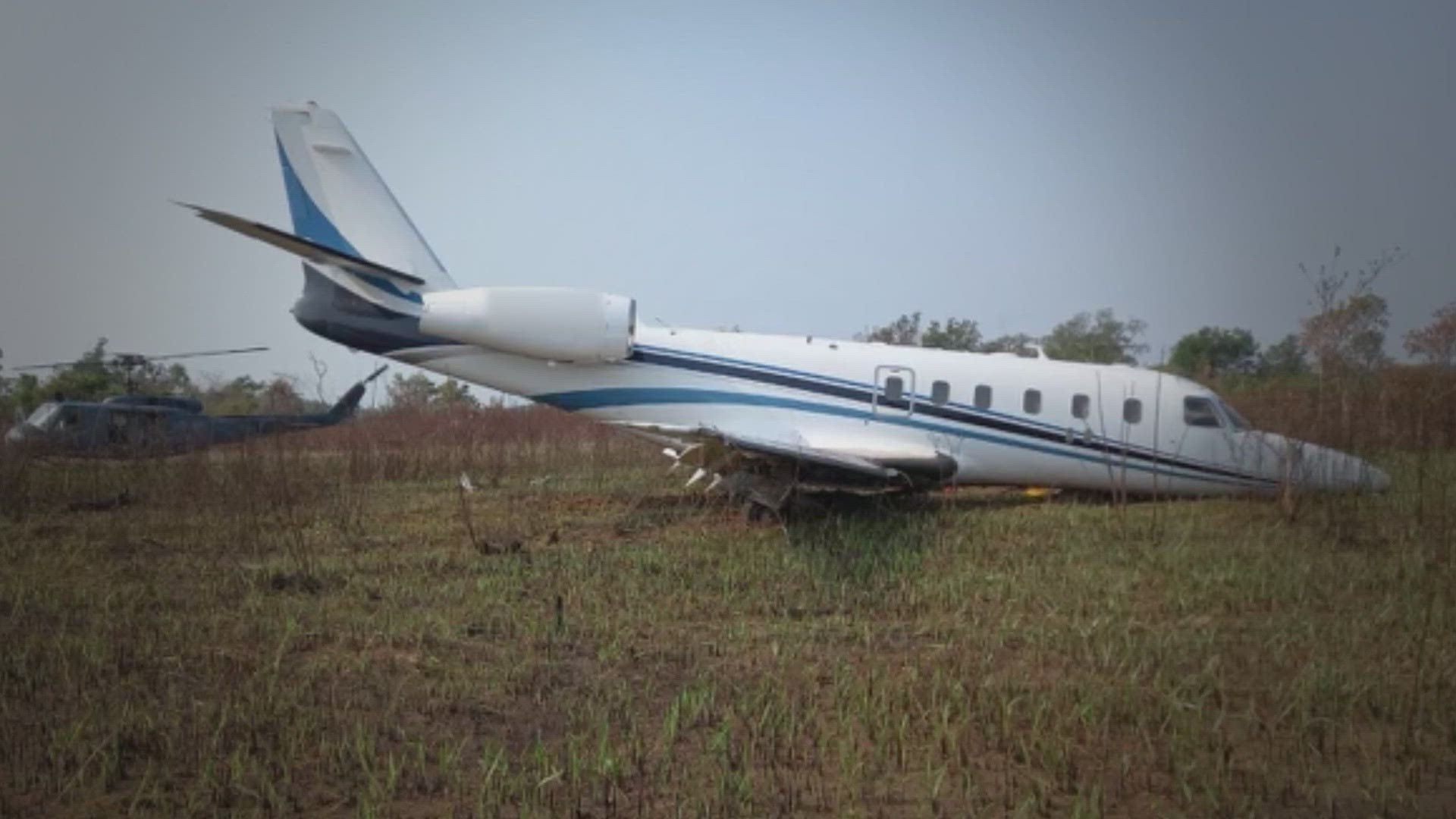WASHINGTON D.C., DC — In a report made public this week, U.S. Sen. Chuck Grassley highlighted WFAA’s investigative reporting showing how easy it is for drug dealers, terrorists and other criminals to get airplanes registered in the United States.
The report titled, “National Security Assessment: Criminal Exploitation of the Federal Aviation Administration Registry," spotlighted WFAA’s 2019 investigation which found there were more planes registered to two P.O. Boxes in Onalaska, Texas, a town of 3,000 people with no airport, than were registered in big cities, such as Seattle, San Antonio, San Diego or New York City.
WFAA’s investigation found Onalaska was the epicenter of a legal loophole that allows foreigners to anonymously register those planes. Our investigation revealed that the FAA allows foreign nationals to gain U.S. registration for their aircraft by transferring ownership to a trust company.
In other words, a check of FAA records on these planes would show aircraft registered in the name of the trust company, in effect helping to shield the identity of the foreign owner. Having an aircraft registered in the U.S. also allows the plane to carry an “N” number on its tail -- a designation that gives the plane certain advantages, such as less scrutiny from foreign governments and better resale value.
In a hearing Tuesday on Capitol Hill, the Iowa Republican said U.S.-registered planes are a “critical tool used by the cartels to move drugs.”
“The FAA is aware of this problem, but hasn’t changed its registration process,” he said.
The FAA currently only charges $5 to register a plane.
The company at the center of the WFAA investigation was Aircraft Guaranty Corp. Its planes repeatedly ended up in the hands of drug traffickers. Our investigation led to a federal probe and the drug smuggling conviction of the company’s owner, Debra Mercer-Erwin.
During Tuesday’s hearing, Grassley showed pictures and video of the company’s planes that ended up in the hand of drug traffickers and cited the April 2020 case in which Aircraft Guaranty jet loaded with nearly two tons of cocaine landed in a Guatemalan jungle. His report included testimony from Mercer-Erwin’s trial that cartels preferred planes registered in trusts because of how easy it was to fly below the radar.
“We've all seen the damage a plane can do the in the hands of an enemy,” Grassley said. “None of us will ever forget how airplanes turned into weapons of mass destruction during the worst terrorist attack on American soil 911 as you know. But 23 years later, the FAA still appears to act like a rubber stamp instead of a watch guard.”
Rebecca Shea, the GAO’s director of forensic Audits and investigative service, to what our reporting revealed was a big problem – that people registering their planes were the only ones verifying that the owner information was actually correct.
“I don’t see how they could possibly know if terrorists were registering aircraft in the U.S.,” she said.
A 2020 GAO report made 15 recommendations on how to fix the problems. Only three of the recommendations have been implemented.
Grassley and U.S. Sen. Sheldon Whitehouse, D-R.I., who co-chairs the Senate Caucus on International Narcotics Control with Grassley, have filed legislation that would require the FAA to implement the GAO's recommendations within 180 days.
"The Preventing Terrorism and Narcotic Air Events Act of 2024," would require the agency to submit a report to the Senate 60 days after implementing the recommendations.
During Tuesday's hearing, Shea also testified that the FAA does not check to see if applicants and aircraft are subject to U.S. sanctions. She testified that FAA officials had told the GAO did not have the authority to deny registration to individuals or aircraft on the sanctions list.
“I’ll leave whether that’s accurate or not to the lawyers,” she said.
Grassley asked what a private company be in violations of sanctions law if acted the way the FAA did.
“It would be a violation of U.S sanctions,” she said. “All U.S. citizens are required to company with sanctions designations.”
Mercer-Erwin faces up to live in prison. She awaits sentencing almost a year after the trial’s conclusion.

